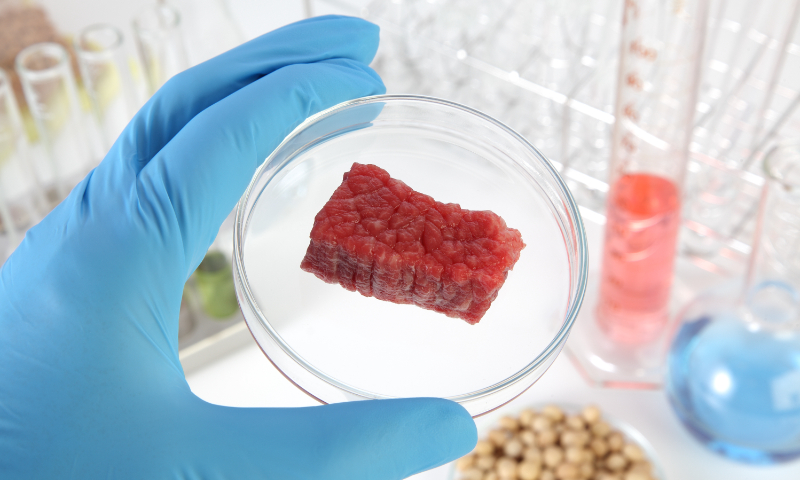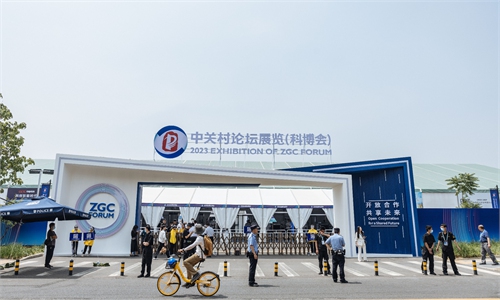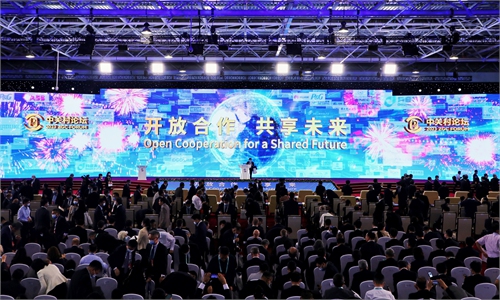Chinese scientists showcase 3D-print cell-cultured meat at ongoing ZGC Forum: reports

A concept photo of cell-cultured meat production technology Photo: VCG
Chinese scientists showcased cell-cultured meat production technology at the ongoing 2023 Zhongguancun (ZGC) Forum in Beijing, through which different kinds of meat could be produced artificially such as pork steaks and chicken breasts, media reports said on Sunday.
Using this technology, researchers can extract muscle stem cells from poultry or livestock, cultivate them into muscle cells in vitro, and then 3D print them into "pork steaks" and "chicken breasts." The nutritional content of the cell-cultured meat is no different from that of ordinary meat, local news outlet Beijing Daily reported.
The technology was developed by the China Meat Food Comprehensive Research Center and showcased at the six-day ZGC Forum, a state-level platform for global technological exchanges and cooperation, which kicked off on Thursday.
With a raw material of pure animal cells, the cultured meat is fundamentally different from plant-based meat. The products will be all animal protein, the report said, citing Li Shilei, a senior engineer from the research center.
"We extract and freeze the muscle stem cells of poultry and livestock, and then take them out for culture and expansion when needed," Li said, adding that the nutrition and taste of the products can be customized according to the needs of different markets.
The cultured meat has similar morphological and sensory characteristics of real meat, and there will be no food safety issues such as residue from veterinary drugs, Li said.
A small-scale production line for the technology is being established in Beijing, and the construction of a pilot scale plant - a pre-commercial production system - is under preparation as well, with an estimated annual output of 10 tons in the future, Li disclosed, noting that such a production scale is still far from commercialization.
As a cutting-edge technology, it may offer an alternative when there is a shortage of real meat or under other special circumstances, Li Guoxiang, a research fellow at the Rural Development Institute of the Chinese Academy of Social Sciences, told the Global Times on Sunday.
While under normal conditions, it takes time to see whether it could be accepted by consumers and whether it could be competitive with real meat, Li Guoxiang said. "It will be the market's call."
China has become the world's largest meat market. It consumed about 100 million tons of meat products in 2021, accounting for 27 percent of the world's total, according to a report released by consulting firm McKinsey & Company in 2022.
A rise in meat demand is expected, and there will be an increasing variety of meat products on the market, according to a report released in April by the Ministry of Agriculture and Rural Affairs on the outlook of China's agricultural sector.
It predicted that meat consumption in the Chinese market will grow steadily throughout the following decade, reaching 104.85 million tons in 2032, with an annual growth rate of 1.1 percent.



